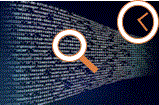
- Home
- Aims and scope
- Topics
- Organization
- Important dates
- Program
- Keynotes
- Invited Talks
- Panel
- Announcements
- Submission
- Scholarship Awards
- Links
Sponsors


Thirteenth International Workshop on
Real-Time Business Intelligence and Analytics
August 26, 2019 - Los Angeles, CA, USA
Keynote speakers
Philip A. Bernstein
Stream Processing in an Actor-Oriented Database System
Many of today's near-real-time, server applications are stateful and processor-intensive. Since their workload is often highly variable, they must be scalable and elastic. Example applications include multi-player games, social networking, mobile computing, telemetry, and Internet of Things. These applications have stateless front-end processors that feed stateful objects in the cloud. Usually these objects are backed by key-value cloud storage, rather than by stored procedures in a database system. This enables the system to scale elastically by adding or removing inexpensive middle-tier servers. When the objects are single-threaded and do not share memory, they are called actors. There are dozens of programming frameworks for building actor applications, such as Akka, Erlang, Orbit, and Orleans. Although these applications do not use a database system, they can benefit from database abstractions, such as transactions, indexing, queries, replication, geo-distribution, and stream processing. We therefore propose a new type of database system, called an actor-oriented database system (AODB), which supports these features over middle-tier stateful objects. As an example feature, we will discuss how to add stream processing to an AODB. The AODB must support different stream processing engines and message transports as plug-ins. It must allow a mix of declarative queries and custom application code and enable fault-tolerant processing of events. We will explain how these requirements were met in the stream processing framework of Orleans.

Philip A. Bernstein is a Distinguished Scientist at Microsoft Research. He has published over 150 papers and two books on the theory and implementation of database systems, especially on transaction processing and data integration, which are still the major focus of his research. He is an ACM Fellow, a AAAS Fellow, a winner of ACM SIGMOD's Codd Innovations Award, a member of the Washington State Academy of Sciences, and the U.S. National Academy of Engineering. He received a B.S. degree from Cornell and M.Sc. and Ph.D. from University of Toronto.
Roger Barga
Extracting Real-Time Insights from Streaming Data
Stream data processing is about identifying and responding to events happening in your business, in your service or application, or with your customers in near real-time. Sensors, IoT and mobile devices, and online transactions all generate data that can be monitored constantly to enable a business to detect and then act on events and insights before they lose their value. The need for large scale, real-time stream processing of big data in motion is more evident now than ever before. In this talk I will draw upon our experience with Amazon Kinesis data streaming services to highlight use cases and dive deep into the role of machine learning over streaming data to extract insights in real-time.

Roger Barga is General Manager for AWS Robotics and Autonomous Systems. Prior to that, Roger was General Manager and Director of Development for Amazon's Kinesis data streaming services. Before joining AWS, Roger was in the Cloud Machine Learning Group at Microsoft, where he was responsible for product management of the Azure Machine Learning service. Roger is also an affiliate professor at the University of Washington, where he is a lecturer in the Data Science and Machine Learning programs. Roger holds a PhD in computer science, has been granted over 30 patents, has published over 100 peer-reviewed technical papers and book chapters, and has authored a book on predictive analytics.
